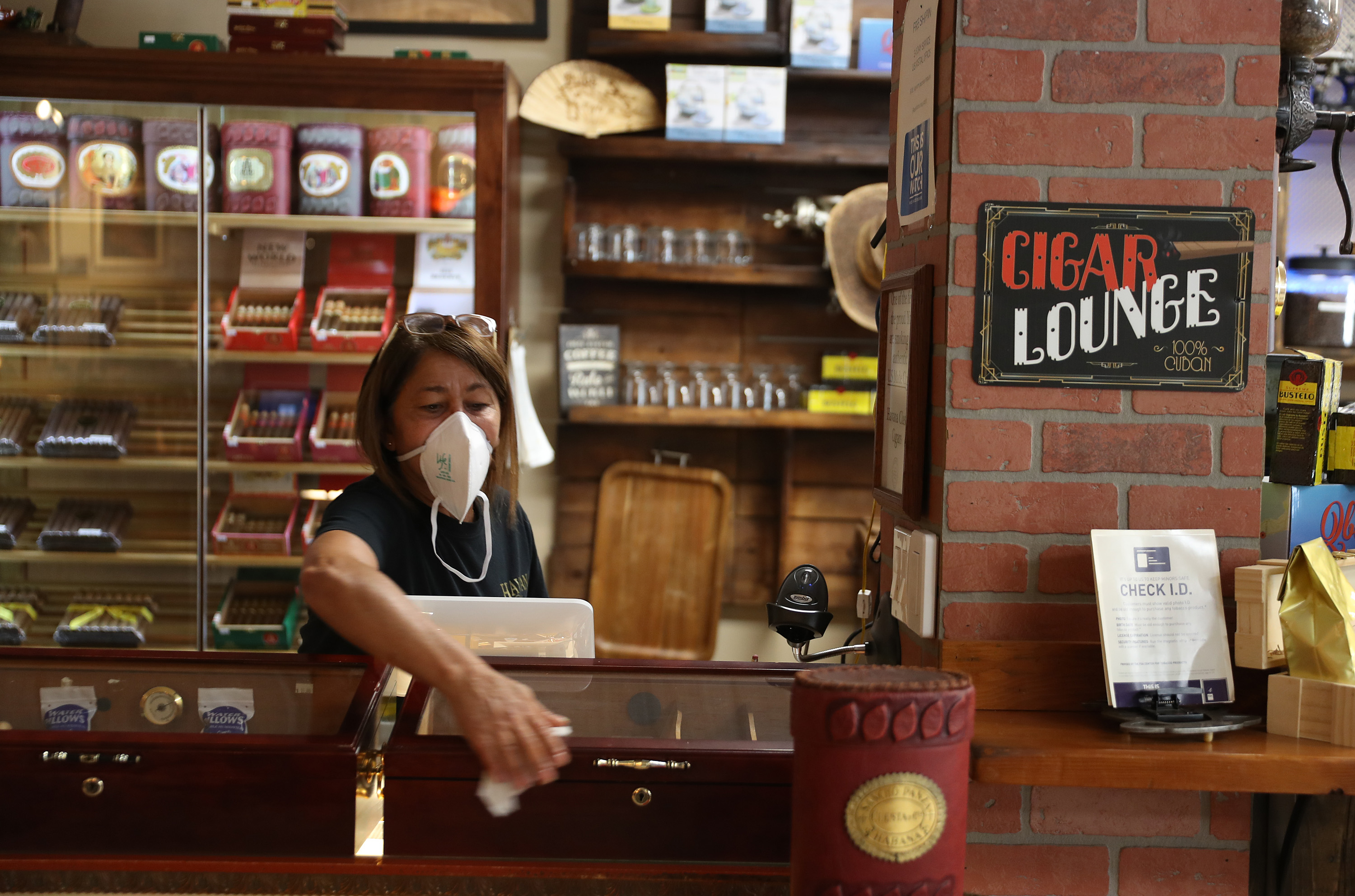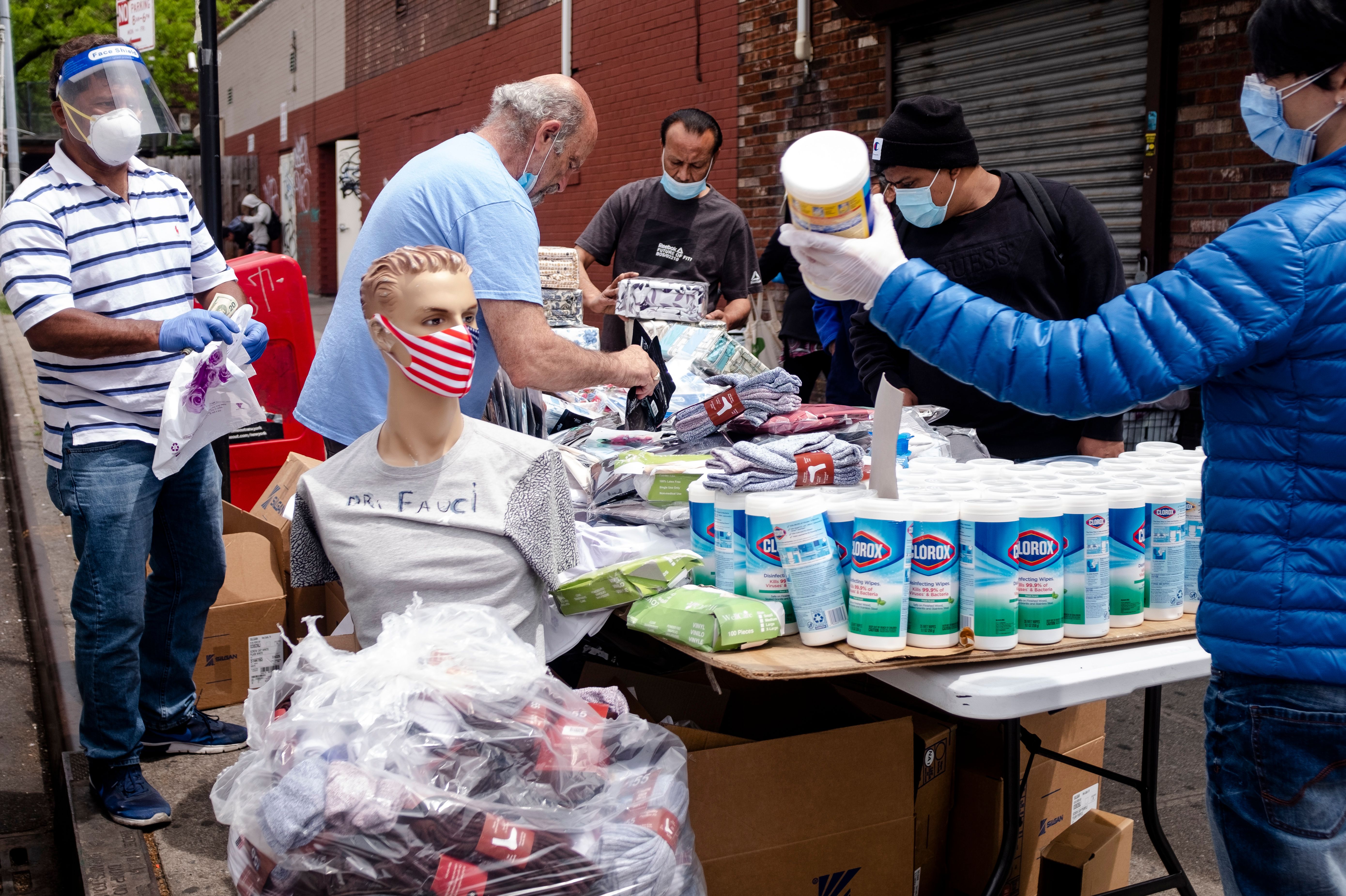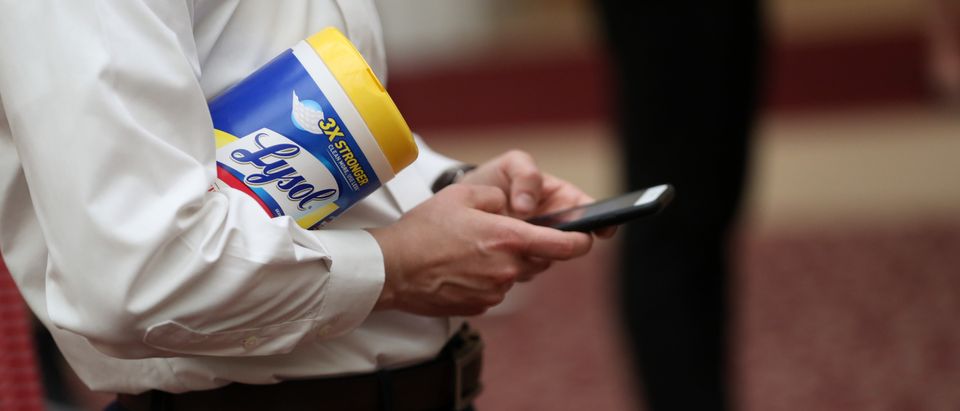The Centers for Disease Control and Prevention (CDC) now says coronavirus doesn’t easily transmit to people who come in contact with contaminated surfaces.
Although it’s unclear when the guidelines were revised, surfaces and objects are now included in a list of ways the virus is not easily spread. Initially, the agency said it “may be possible” for the virus to spread through contact with infected surfaces and objects, according to Fox News.
“COVID-19 is a new disease and we are still learning about how it spreads. It may be possible for COVID-19 to spread in other ways, but these are not thought to be the main ways the virus spreads,” the description for the list says.

Vilma Perez uses sanitizer wipes to wipe down a counter as she helps prepare to open the Havana Classic cigar shop on May 19, 2020 in Miami, Florida. (Photo by Joe Raedle/Getty Images)
“It may be possible that a person can get COVID-19 by touching a surface or object that has the virus on it and then touching their own mouth, nose, or possibly their eyes,” the CDC description says.
“This is not thought to be the main way the virus spreads, but we are still learning more about this virus.”
Other ways the virus is not easily spread, according to the list, include transmission from animals to people and from people to animals.
The CDC says that the virus spreads easily between people and is doing so more readily than influenza might, but not as readily as the measles. (RELATED: ‘No Evidence’ That Coronavirus Spreads In Swimming Pools, According To CDC)

A man sells face masks and disinfection wipes on a street side table on May 18, 2020 in the Elmhurst neighbourhood of Queens in New York City. (Photo by JOHANNES EISELE/AFP via Getty Images)
The revision appears to have come after a March study reported by Fox News suggested that the virus can stay in the air for up to three hours, on surfaces like copper and cardboard for up to 24 hours and on stainless steel and plastic for anywhere between two and three days. The study was not peer-reviewed.
The study’s results suggested that people can become infected with the virus through the air and by touching contaminated surfaces. It also affirmed the recommendations from public health professionals at the time to clean and disinfect frequently-touched surfaces with cleaning sprays or wipes.


